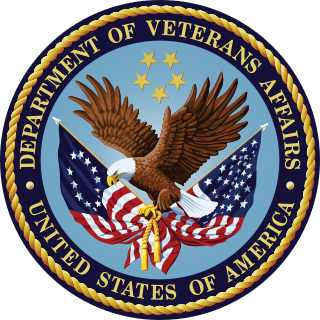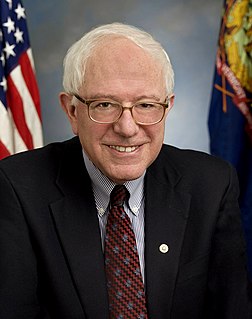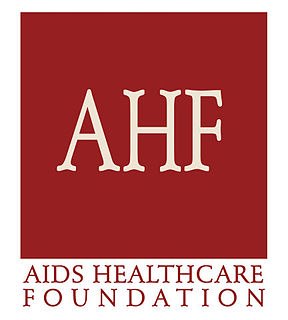
The California special election of 2005 was held on November 8, 2005 after being called by Governor Arnold Schwarzenegger on June 13, 2005.

The California state elections, November 2008 were held on November 4, 2008 throughout California. Among the elections taking place were those for the office of President of the United States, all the seats of California's delegation to the House of Representatives, all of the seats of the State Assembly, and all of the odd-numbered seats of the State Senate. Twelve propositions also appeared on the ballot. Numerous local elections also took place throughout the state.

California Proposition 6, also known as the Safe Neighborhoods Act and The Runner Initiative, is a statutory initiative that appeared on the November 2008 ballot in California. This proposition was rejected by voters on November 4 of that year.

California's state general elections were held November 5, 1996. Necessary primary elections were held on March 26, 1996. Up for election were all eighty (80) seats of the State Assembly, twenty (20) seats of the State Senate, and fifteen (15) statewide ballot measures.

Arizona Proposition 102 was an amendment to the constitution of the state of Arizona adopted by a ballot measure held in 2008. It added Article 30 of the Arizona Constitution, which says: "Only a union of one man and one woman shall be valid or recognized as a marriage in this state." The amendment added a constitutional ban on same-sex marriage to existing statutory bans in place since 1996. In October 2014, Article 30 of the Arizona Constitution was struck down as unconstitutional in the United States District Court for the District of Arizona, and is no longer enforced by the state of Arizona, which now allows and recognizes same-sex marriages.

Proposition 3 is a law that was enacted by California voters by means of the initiative process. It is a bond issue that authorizes $980 million in bonds, to be repaid from state’s General Fund, to fund the construction, expansion, remodeling, renovation, furnishing and equipping of children’s hospitals. The annual payment on the debt authorized by the initiative is approximately $64 million a year. Altogether, the measure would cost about $1.9 billion over 30 years out of California's general fund.

California Proposition 5, or the Nonviolent Offender Rehabilitation Act was an initiated state statute that appeared as a ballot measure on the November 2008 ballot in California. It was disapproved by voters on November 4 of that year.

Proposition 11 of 2008 was a law enacted by California voters that placed the power to draw electoral boundaries for State Assembly and State Senate districts in a Citizens Redistricting Commission, as opposed to the State Legislature. To do this the Act amended both the Constitution of California and the Government Code. The law was proposed by means of the initiative process and was put to voters as part of the November 4, 2008 state elections. In 2010, voters passed Proposition 20 which extended the Citizen Redistricting Commission's power to draw electoral boundaries to include U.S. House seats as well.

California Proposition 7, would have required California utilities to procure half of their power from renewable resources by 2025. In order to make that goal, levels of production of solar, wind and other renewable energy resources would more than quadruple from their current output of 10.9%. It would also require California utilities to increase their purchase of electricity generated from renewable resources by 2% annually to meet Renewable Portfolio Standard (RPS) requirements of 40% in 2020 and 50% in 2025. Current law AB32 requires an RPS of 20% by 2010.

California Proposition 10, also known as the California Alternative Fuels Initiative, was an unsuccessful initiated state statute that appeared on the November 2008 ballot in California. Proposition 10 was funded byClean Energy Fuels Corp. a corporation owned by T. Boone Pickens. Clean Energy Fuels Corp. is the nation's leading operator of natural gas vehicle fueling stations.

Proposition 12 appeared on the November 4, 2008 ballot in California. It is also known as the Veterans' Bond Act of 2008. The measure was legislatively referred to the ballot in Senate Bill 1572. The primary sponsor of SB 1572 was Senator Mark Wyland, R-Carlsbad. The vote to place the measure on the ballot was passed unanimously in both the California state senate (39-0) and assembly (75-0).

A California Congressional Redistricting Initiative, Proposition 20 was on the November 2, 2010 ballot in California. It was approved by 61.2% of voters. Election officials announced on May 5 that the proposition had collected sufficient signatures to qualify for the ballot. The measure is known by its supporters as the VOTERS FIRST Act for Congress.

California Proposition 19 was a ballot initiative on the November 2, 2010 statewide ballot. It was defeated, with 53.5% of California voters voting "No" and 46.5% voting "Yes." If passed, it would have legalized various marijuana-related activities, allowed local governments to regulate these activities, permitted local governments to impose and collect marijuana-related fees and taxes, and authorized various criminal and civil penalties. In March 2010, it qualified to be on the November statewide ballot. The proposition required a simple majority in order to pass, and would have taken effect the day after the election. Yes on 19 was the official advocacy group for the initiative and California Public Safety Institute: No On Proposition 19 was the official opposition group.

Proposition 39 is a ballot initiative in the state of California that modifies the way out-of-state corporations calculate their income tax burdens. The proposition was approved by voters in the November 6 general election, with 61.1% voting in favor of it.

Proposition 37 was a California ballot measure rejected in California at the statewide election on November 6, 2012. This initiative statute would have required labeling of genetically engineered food, with some exceptions. It would have disallowed the practice of labeling genetically engineered food with the word "natural." This proposition was one of the main concerns by the organizers of the March Against Monsanto in May 2013.

Proposition 34 was a California ballot measure that was decided by California voters at the statewide election on November 6, 2012. It sought to repeal Proposition 17, originally passed by voters in 1972, thus abolishing the death penalty in California.

Proposition 30, officially titled Temporary Taxes to Fund Education, is a California ballot measure that was decided by California voters at the statewide election on November 6, 2012. The initiative is a measure to increase taxes to prevent US$6 billion cuts to the education budget for California state schools. The measure was approved by California voters by a margin of 55 to 45 percent.

In California state elections, 2014 was the first year in which the top statewide offices were elected under the nonpartisan blanket primary, pursuant to Proposition 14, which passed with 53% voter approval in June 2010. Under this system, which first went into effect during the 2012 election year, all candidates will appear on the same ballot, regardless of party. In the primary, voters may vote for any candidate, regardless of their party affiliation. The top two finishers, regardless of party, then advance to face each other in the general election in November.
The Ohio Drug Price Relief Act was a ballot initiative in Ohio that would have made the state pay no higher of a price for prescription drugs than the lowest price that the United States Department of Veterans Affairs pays for them. It was voted on November 7, 2017 as Issue 2 on the ballot. The act was originally going to be voted on in November 2016, but the measure did not receive enough signatures. It was mostly funded by the AIDS Healthcare Foundation, the same organization that backed California Proposition 61. Supporters of the act said that it would lower drug prices and help save the state money, while opposers said that it is unworkable.













